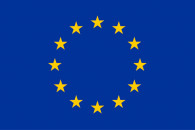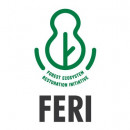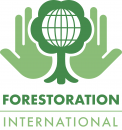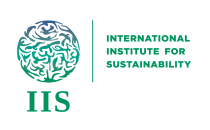News > Events
09.09.20
Webinar Series: A decision support platform for spatial optimisation planning of forest ecosystem restoration (WePlan – Forests)
A global event
Since 2019 the International Institute for Sustainability Australia (IIS AU) and the International Institute for Sustainability Rio (IIS Rio) have partnered with the UN Convention on Biological Diversity (CBD) and other stakeholders to streamline access to spatial optimisation planning for forest ecosystem restoration. The aim of this project is to offer to all developing country Parties to the CBD with tropical forest, a Decision Support Platform (DSP) for multi-purpose spatial optimisation planning of forest ecosystem restoration, and to support countries in formulating more ambitious, realistic and specific tropical forest ecosystem restoration plans and targets within their global commitments.
The main goal of this series of webinars is to promote the uptake of the science in which the DSP is based by potential users (especially CBD focal points or government representatives). Further, it aims to get feedback from the participants to improve the DSP interface and the training itself, and to tailor the platform to the needs of users. Lastly, it aims to produce training material that will be made available within the DSP for future users, and to showcase the platform.
Participation is open upon registration. So far, 406 people from 92 countries across the globe have registered to participate. Most attendees were representatives from governmental agencies (ca. 40%), but they also come from Not-for-Profit organizations, academia and many other backgrounds.

fourth webinar: Launch of WePlan-Forests: A decision support platform for spatial planning of forest ecosystem restoration
This webinar was the last of the series, launching the demonstration version of the WePlan-Forests platform (http://weplan-forests.org/). You can access the content from the 4th webinar on the links below.
THIRD webinar: Implications of systematic spatial planning and spatial restoration optimisation for the economics of restoration and policy design
This webinar covered the following topics: 1) Economics and Forest Restoration Planning (Dr. Jeffrey Vincent) and 2) Implications of systematic spatial planning for ecosystem restoration public policies: from local to global scale (Dr. Carlos Alberto Scaramuzza). You can access the content from the 3rd webinar on the links below.
Second webinar: How to deliver tropical forest restoration at scale: unlocking the potential of natural regeneration
This webinar covered the following topics: 1) The importance of natural regeneration and of assessing its potential (Dr. Robin Chazdon), 2) Mapping the potential for natural regeneration in tropical forest ecosystems (Dr. Renato Crouzeilles), and 3) Applications of the map of the potential for natural regeneration for the planning of restoration actions and target-setting (Dr. Starry Sprenkle-Hyppolite). You can access the content from the 2nd webinar on the links below.
first webinar: Foundations of systematic spatial planning and spatial restoration optimisation
This webinar covered the following topics: 1) WePlan – Forests: A Decision Support Platform for spatial optimisation of forest ecosystem restoration (Dr. Renato Crouzeilles), 2) Introduction to systematic spatial planning and spatial restoration optimisation (Dr. Morena Mills), and 3) Spatial optimisation planning: a case study in the Brazilian Atlantic Forest and relevance to the setting of restoration targets (Dr. Bernardo Strassburg). You can access the content from the 1st webinar on the links below.
Background
The need to further develop the capacity, in particular, of developing country Parties to the UN Convention on Biological Diversity (CBD) to undertake quantitative, spatially-explicit assessments of restoration opportunities was highlighted in the Pan-African Action Agenda on Ecosystem Restoration for Increased Resilience, adopted in November 2018. The Action Agenda mentions that by 2025 “relevant tools, technologies and innovative solutions developed or mobilized and made available to assist Member States and partners to effectively design, implement, monitor and report on ecosystem restoration initiatives” and that “land and ecosystem restoration should maximise multiple benefits (biodiversity, resilience to climate change and climate change mitigation/adaptation, economic and livelihood benefits)”. Further, the Conference of the Parties in its decision XIII/5, requested the Executive Secretary to support the efforts of Parties in making use of the short-term action plan on ecosystem restoration by, inter alia, supporting the use of tools in collaboration with relevant partners and initiatives.
We hope that WePlan – Forests: A decision support platform for spatial optimisation planning of forest ecosystem restoration, can equip Parties to develop optimised, outcome-based national targets on forest ecosystem restoration that will directly support the implementation of the post-2020 global biodiversity framework and related Sustainable Development Goals. The development of this project is generously supported by the European Union and by the Forest Ecosystem Restoration Initiative (FERI) which is supported by the Korea Forest Service of the Republic of Korea.
webinar series
The webinars will be realised through a teleconferencing system (ZOOM), at a time viable for most African and American countries to take part (10:30 a.m. GMT-3). Later, they will be presented again at a time viable for participation of countries from Asia and Oceania, with another round of Q&A session at the end (2:00 p.m. GMT+10). The live sessions and the Q&A sessions will be in English, with simultaneous translation in French and Spanish.







